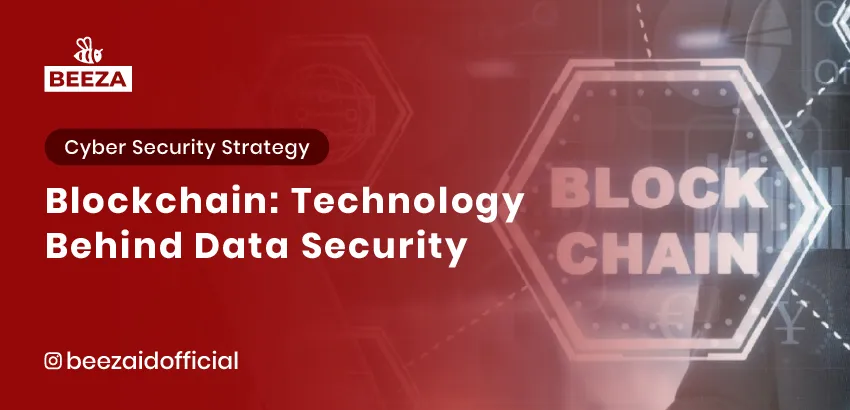
Introduction: Blockchain
In an era where data breaches and cyber threats are on the rise, businesses and governments alike are seeking robust, transparent, and tamper-proof technologies to secure sensitive information. One technology stands out among the rest: blockchain.
Initially popularized by cryptocurrencies like Bitcoin, blockchain has since evolved into a powerful tool for securing data, managing digital identities, and ensuring transaction integrity across various industries.
But what makes blockchain a game-changer in data security? And how can it help organizations safeguard digital assets more effectively?
What is Blockchain?
At its core, blockchain is a decentralized digital ledger that records data in blocks, which are linked in a chronological and immutable chain.
🔐 Key characteristics of blockchain:
- Decentralization: Data is not stored in a single server, reducing single points of failure.
- Immutability: Once recorded, data cannot be altered without consensus from the network.
- Transparency: All transactions can be verified by participants in the network.
- Cryptographic Security: Every block is encrypted and linked using secure hashing algorithms.
How Blockchain Enhances Data Security
1. Tamper-Proof Data Storage
Blockchain’s immutability ensures that once data is recorded, it cannot be modified without alerting the entire network—making it an ideal solution for sensitive and mission-critical data.
✅ Example: In logistics, blockchain is used to ensure transparency in the supply chain by preventing any party from altering shipment data.
2. Secure Digital Identity Management
Blockchain enables users to control their digital identities without relying on centralized authorities, reducing risks of data leaks and identity theft.
✅ Example: With Self-Sovereign Identity (SSI) systems, users can verify themselves without exposing personal data to multiple platforms.
3. Encrypted and Traceable Transactions
Transactions recorded on blockchain are encrypted and verifiable, helping prevent fraud, forgery, and unauthorized access.
✅ Example: Financial institutions use blockchain to track and verify digital asset transactions in a secure, transparent manner.
4. Reliable Audit Trail
Blockchain maintains a permanent, traceable history of all transactions, making it an ideal tool for audits and forensic investigations.
✅ Example: In e-government systems, blockchain ensures the integrity of procurement processes by providing traceable records.
Challenges in Implementing Blockchain
Despite its strengths, blockchain adoption comes with certain hurdles:
- Scalability Issues: Public blockchains may face slower transaction speeds.
- Technical Complexity: Requires specialized expertise and resources.
- Regulatory Uncertainty: Blockchain-related regulations are still evolving across regions.
- Initial Investment: Developing and integrating blockchain systems can be costly upfront.
However, ongoing innovation and collaboration are helping organizations overcome these barriers and unlock blockchain’s full potential.
Real-World Applications of Blockchain in Data Security
- eKYC & Identity Verification: Securely verify customer identity without centralized data storage.
- Digital Voting Systems: Enable tamper-proof and transparent elections.
- Electronic Medical Records (EMR): Ensure healthcare data remains accurate and accessible only to authorized users.
- Supply Chain Traceability: Authenticate product origin and journey with real-time visibility.
Conclusion
Blockchain is redefining how we store, manage, and protect data in a digital-first world. With its built-in encryption, transparency, and decentralized nature, blockchain offers a powerful framework for data integrity and trust.
🔐 As cyber threats evolve, blockchain isn’t just a futuristic trend—it’s a strategic asset for any organization that prioritizes secure, transparent, and verifiable data systems.Looking to implement blockchain or strengthen your data security infrastructure? Contact Beeza today to explore tailored solutions for your business.
Discover other intelligent technologies with Beeza to build a more secure and resilient digital future.